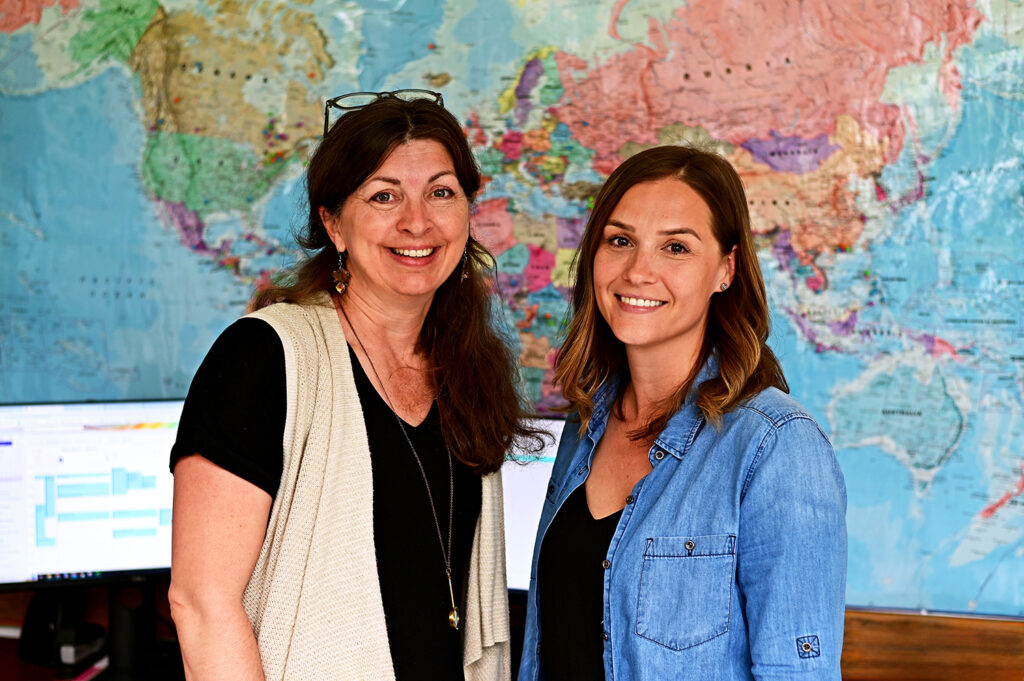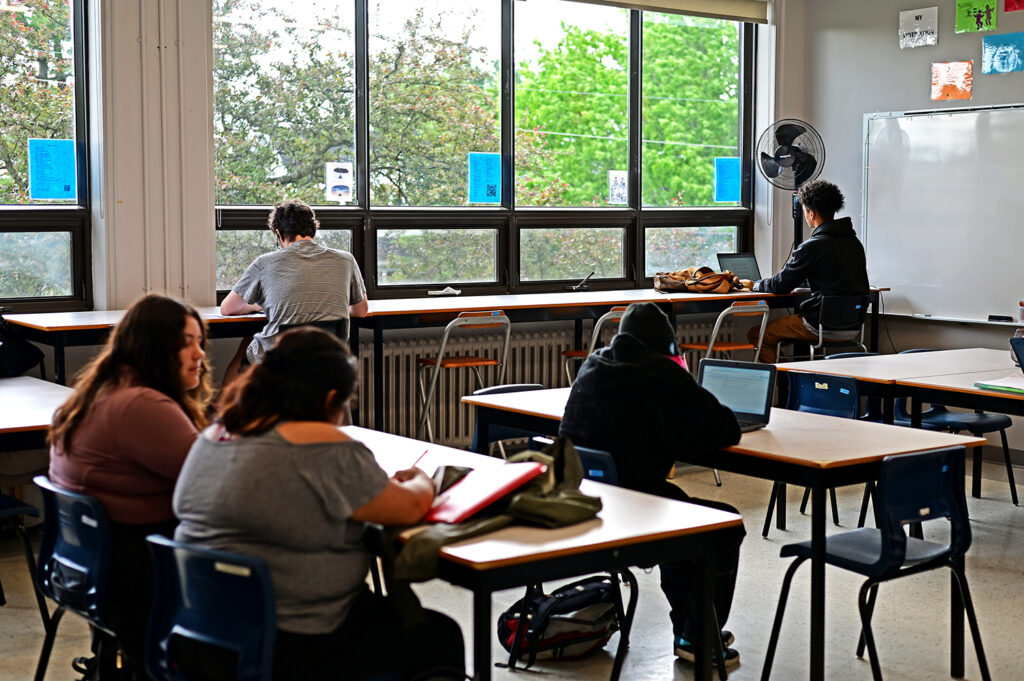
Education isn’t always a linear journey, and the Western Québec School Board’s Adult Education centres are buildings committed to serving students who have made a conscious effort to further their learning. For some who have faced adversity along their path, the staff at the centres are key to their success. For many adult students, their studies are juggled with raising a family and working part-time and full-time jobs. Flexibility and guidance are essential in supporting their diverse needs.
Meet Polly Green and Trisha Willcott, the Academic Advisors at the Hull Adult Education Centre (HAEC). Ms. Green has been at the HAEC since 2017, and before that time, she was a part of the Drug Awareness and Prevention team at the school board. Ms. Green has become an advocate for adult education, continually gaining knowledge of possible pathways to further education or attain goals, while also working to destigmatize views that many still hold towards adult education.
Ms. Willcott is the advisor for Distance Education, which covers the entire WQSB territory. In addition to this role, she is also the advisor for two other WQSB adult centres: the Maniwaki Continuing Education Centre and the Val d’Or Continuing Education Centre. She has been an advisor for four years and enjoys her role very much. Ms. Willcott has also had the opportunity to work at the Pontiac Continuing Education Centre and the Western Québec Career Centre. Each centre brought experiences that helped Ms. Willcott develop a deeper understanding of the many education pathways and career opportunities available to students. Furthermore, she believes these experiences have helped her refine her communication skills with students and can better cater to their various needs and goals.
Though Ms. Green and Ms. Willcott’s positions are quite different, they occasionally work together. This past year, they have had students who have switched from in-person to distance learning and vice versa. They work together to inform one another of the students’ goals and progress. “It’s important that we look at the overall profile of a student and help them decide which learning environment would best suit their needs,” shares Ms. Willcott. The advisors also work together to inform youth sector schools about adult education through presentations and information sessions for both students and staff members.

A student’s story from a recent group of graduates stands out keenly to Ms. Green. This student’s previous school experiences had not been positive, and he was coming from a tumultuous and tragic childhood. However, he was bright and more than academically capable of graduating. Ms. Green and this student were able to create a plan for his courses that suited his needs and his schedule. Open communication throughout his time at the Centre was also key in his success. Furthermore, Ms. Green provided regular assurance that the Centre’s community was there to support him, and that it is a safe space for him to fulfill his academic goals.
This student graduated during one of the most difficult weeks of his family’s life. Staff members at the HAEC were not sure he would be in attendance, but to their surprise and joy, he showed up to the ceremony with his family who wanted to celebrate his success.
Adult Education gives many students a chance to complete their high school diploma, learn a second or third language and open their career opportunities. “Adult Education is understanding that it is okay to have a loopy and winding pathway when attaining goals. Getting there is what is truly the most important,” shares Ms. Green. The Western Québec School Board is proud of its six Adult Education centres across its territory, with dedicated staff members supporting students while they attain their educational and career goals.
Special thank you to Polly Green and Trisha Willcott for providing the information for this article.